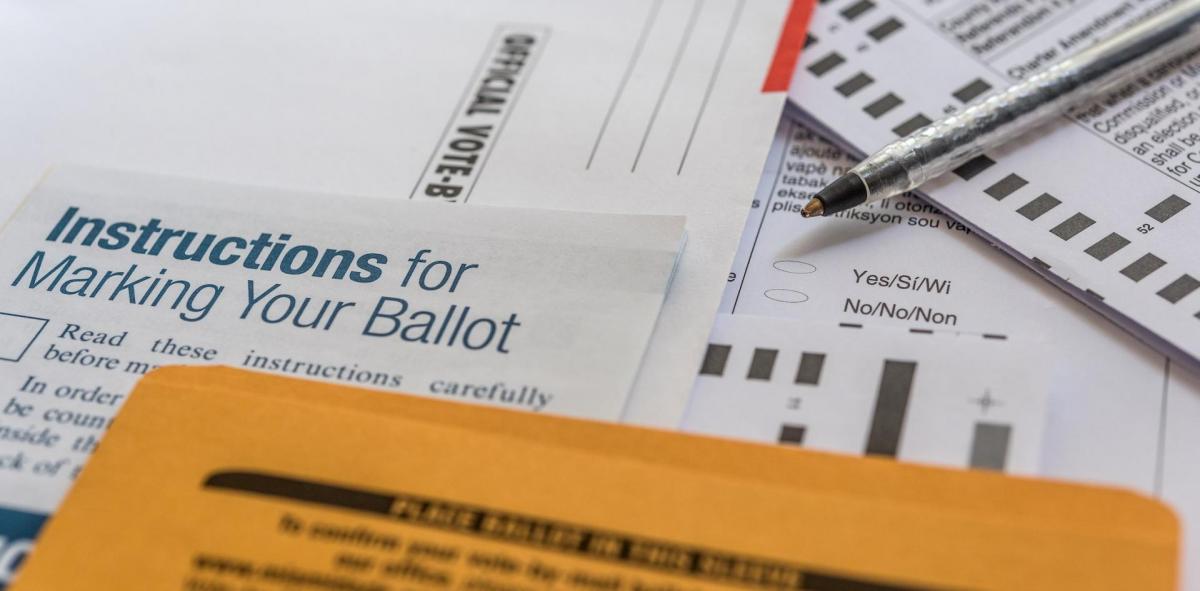Category: Ballot measures
-
Utah voters have decided 220 ballot measures since 1895, beginning with constitution ratification ahead of statehood

Ballotpedia completed an inventory of all Utah ballot measures dating back to 1895, when voters approved the state constitution. Between 1895 and 2024, Utahns voted on 220 ballot measures—140 (63.6%) were approved and 80 (36.4%) were defeated. This count includes the ratification of the state constitution by voters in 1895, two months before the United States…
-
After 2023 veto, Arizona legislature sends drug cartel terrorism designation law directly to voters as ballot measure

The Arizona State Legislature approved House Concurrent Resolution 2055 (HCR 2055), placing a ballot measure about drug cartels before voters in the 2026 election. If approved, the ballot measure would define drug cartels as terrorist organizations and require the Arizona Department of Homeland Security to “do everything within its authority to address the threat posed…
-
Texas voters will decide on eighth amendment related to the State Commission on Judicial Conduct since its founding in 1965 in November

Texas will head to the polls in November to decide on 17 ballot measures, including Proposition 12, which will be the eighth amendment related to the State Commission on Judicial Conduct (SCJC), which was established in the constitution in 1965. Proposition 12 would amend the Texas Constitution to change the composition of the SCJC by…
-
Maine voters to decide two citizen-initiated ballot measures in Nov. 2025 election, including voter ID and extreme risk protection orders

The Maine State Legislature adjourned on June 25, meaning voters will decide two indirect initiated state statutes at the election on Nov. 4, 2025. Signatures were submitted for two ballot initiatives in Jan. 2025—the Require Voter Photo ID and Change Absentee Ballot and Dropbox Rules Initiative and Extreme Risk Protection Orders to Restrict Firearms and…
-
Ballot measure update: Utah veto referendum and amendments in Arizona, Florida, and Louisiana certified for 2026

The number of certified statewide ballot measures for both 2025 and 2026 is trending above average compared to previous election cycles as of June 24. 2025 ballot measures For 2025, 27 statewide ballot measures have been certified in seven states—Colorado, Louisiana, New York, Ohio, Texas, Washington, and Wisconsin. This is six more than the average…
-
Utah voters to decide public sector collective bargaining ban in first veto referendum in 18 years

In Utah, a veto referendum has qualified for the Nov. 3, 2026, ballot, allowing voters to decide whether to uphold or repeal House Bill 267 (HB 267). The bill would prohibit public sector unions from entering into collective bargaining agreements. It would take effect only if a majority of voters support upholding it in the…
-
Arizona 2026 ballot measure would require voter approval to raise local grocery sales taxes, cap them at 2%

Arizona voters will decide on a measure that would prohibit local governments from establishing or raising a sales tax on groceries without voter approval, and would limit the rate to 2%. Voters will decide the measure on Nov. 3, 2026. The measure was introduced in the Arizona House of Representatives on Jan. 27 as House…
-
Florida voters to decide on changes to budget stabilization fund in 2026

The Florida State Legislature voted on June 16, the final day of the legislative session, to send a constitutional amendment to voters that would make changes to the state’s budget stabilization fund (BSF). It will need to be approved by 60% of voters in Nov. 2026. The amendment would increase the maximum amount that can…
-
Louisiana legislature refers six constitutional amendments to 2026 ballot covering taxes, civil service, judicial retirement, and education

The Louisiana State Legislature voted to send six constitutional amendments to the 2026 ballot before adjourning on June 12. The six amendments will be decided at two different elections; five will appear on the ballot on April 18, 2026, and one on Nov. 3, 2026. The constitutional amendments cover a variety of topics, including the…
-
Ballot measure update: Texas, New York add new measures for 2025; Louisiana, Nebraska for 2026

The number of certified statewide ballot measures for both 2025 and 2026 is trending above average compared to previous election cycles as of June 10. 2025 ballot measures For 2025, 27 statewide ballot measures have been certified in seven states—Colorado, Louisiana, New York, Ohio, Texas, Washington, and Wisconsin. This is seven more than the average…

